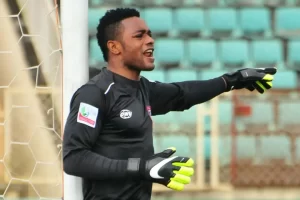Former minister, Dr Obiageli Ezekwesili has linked Africa’s under-development to the absence of good governance and quality political leadership.
Ezekwesili, who is the Founder, School of Politics, Policy and Governance School and Chair, #FixPolitics, spoke weekend at the inaugural session of the SPPG Distinguished Guest Speaker Series, which was attended by thousands of Africans and global stakeholders.
Speaking on the theme, ‘Power, Performance and Legitimacy: Renewing Global Democratic Momentum’, she explained that the central thesis of #FixPolitics research was that “the absence of good governance is the greatest obstacle” to Nigeria’s economic development.
Ezekwesili told the participants, “The failure of the country’s variant of politics and public leadership inherently subverts public good and places their personal and narrow interests above the collective wellbeing of citizens.
“In the light of the above, whether it is 2020 or 2060, nothing about Nigeria can change without a transformation of its politics. Our democracy is coming out of deficit, as African politicians have not delivered on the contract between them and the people they govern.”
Explaining how nations grow, Ezekwesili said the trinity of growth and development showed that citizens of Nigeria and the rest of Africa need a politics that leads to good governance.
According to her, sound policies, strong institutions and efficient priority of investment in public goods and services are crucial for private sector emergence and growth of the economy.
On the way out, she said there was a need to raise the influence of the electorate and make votes of the low income class expensive.
This, she said, would happen by raising productivity, as well as improving political literacy and welfare of the people.
For middle class voters, she said data and factual evidence should be used to highlight the cost of indifference to them, adding that contents for such campaigns should be delivered to their diverse social networks through technology.
Ezekwesili called for the establishment of unconventional SPPG to flood the political space with a new class of valued-based politicians that would emerge on a large scale.
She said there was a need for a new set of Nigerians trained on customised curriculum on ethical politics, policy and governance to offer a new dominant political culture that would subordinate personal interest to the collective welfare of Nigerians.
She stressed the need to mobilise the Nigerian public to collectively demand a new constitution, political, electoral and economic restructuring of the country.
“Only Nigerian citizens working together can compel the three arms of government to respond urgently and avert the imminent collapse of Nigeria into a failed state (Nigeria is the number 13 country on the global ranking of failed states),” she disclosed.
She advocated an effective regulatory system and corrective mechanism that could cut the powers of a monopolistic political class in any democracy, and urged citizens to step up, take responsibility and mobilise the #OfficeOfTheCitizen to structurally transform their political system.
“Although the politicians may be numerous and belong to different parties, their commonality of Incentive and disincentives to which they respond or ignore is akin to the features of a monopolistic market,” she said.
Continuing, Ezekwesili described monopolies as illegal and generally harmful to the economy and welfare of consumers.
“It is why market anti-trust laws and effective regulations step in to correct market distortions once a monopolistic situation is detected.
“In the economic context, choosing one brand of product or service out of the range of options available is a function of the degree of competition (e.g. substitutes) that exists in the market for that particular good or service,” the former minister said.
On his part, Prof Larry Diamond from Stanford University, United States of America, condemned the practice where the ruling party controls the political pace, electoral process and makes credible elections impossible.
Diamond, a senior fellow at the Hoover Institution and the Mosbacher Senior Fellow in Global Democracy at the Freeman Spogli Institute for International Studies at Stanford University, said, “Nigeria has a lot of traditional rulers, who are preservers of culture and key in maintaining peace.”
According to him, free and fair elections were the minimum condition of democracy.
The don said levels of freedom and democracy were declining across the world, and Africa was not left behind.
He said that in Sub-Saharan Africa, South Africa and Ghana “are classified as liberal democracy, but that it’s not the case with Nigeria.”
Liberal democracy, he noted, “is declining in Africa”, canvassing the reversal of the trend.
Some of the participants voiced their opinions on Africa’s democracy and the way forward for the continent.
Dr John Godson said having traditional rulers to play constitutional roles would be good for African democracy.
“Africa needs a homegrown democratic system to thrive,” he said.
Rex Rim-Rukeh called for Africa’s democracy to be tailored to fit Africa’s needs, a process he said should start immediately.
On his part, Murtala Muhammad said some schools already believed that liberal democracy failed in Sub-Saharan Africa.
He asked, “Can we have an alternative to liberal democracy?”
Source
Disclaimer: No copyright infringement intended. All rights and credits reserved to respective owner(s).























Add Comment